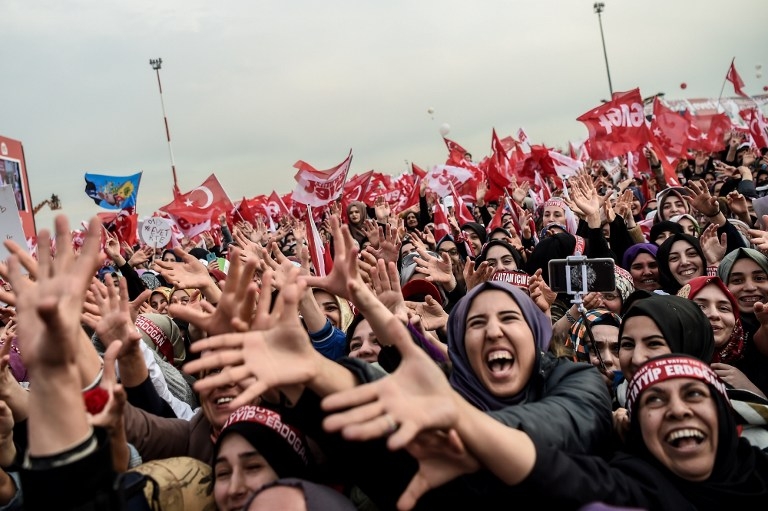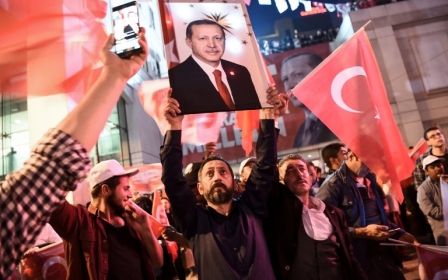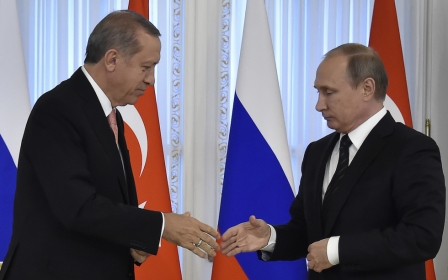2.5 million Turkish votes may have been manipulated: Observer

Up to 2.5 million votes could have been manipulated in Sunday's Turkish referendum that ended in a close "yes" vote for greater presidential powers, an Austrian member of the Council of Europe observer mission said on Tuesday.
However, Turkish authorities are not cooperating with efforts to investigate claims of possible election fraud, according to a senior official in the Organisation for Security and Cooperation in Europe (OSCE), which conducted a separate monitoring mission.
Turkish President Recep Tayyip Erdogan has dismissed criticisms of the vote, saying foreign observers should "know their place". The foreign ministry said foreign monitors lacked objectivity and impartiality.
The mission of observers from the 47-member Council of Europe, the continent's leading human rights body, had already pronounced the referendum to be an uneven contest. Support for "Yes" dominated campaign coverage, and the arrests of journalists and closure of media outlets silenced other views, according to Council of Europe and OSCE monitors.
Alev Korun, an Austrian member of the Council's observer team, said there were questions about the actual voting as well.
"This is about the fact that actually the law only allows official voting envelopes. The highest election authority decided however - as it were, against the law - that envelopes without official stamps should be admitted," she told ORF radio.
"There is a suspicion that up to 2.5 million votes could have been manipulated," added Korun, a Greens member of the Austrian parliament. That number of votes would be almost double the margin of Erdogan's victory.
Michael Georg Link, who headed the OSCE observer mission, said Turkey was not helping an investigation into possible irregularities, and Ankara's questioning of OSCE neutrality was "clearly politically motivated".
He declined comment on a possible change in the result of the referendum after any recount, but said the election commission's decision to allow incorrectly or non-stamped envelopes was a definite violation of Turkish law.
"Unfortunately we cannot talk about any cooperation," Link told the RND German newspaper chain. "Erdogan's decision to extend the state of emergency for 90 days and comments in which the election commission has already rejected claims of manipulation send a clear message."
Election authorities said preliminary results showed 51.4 percent of voters had backed sweeping new powers for Erdogan, something he says is needed to prevent instability.
Turkey's main opposition began a battle on Tuesday to annul the referendum.
Korun said police in the majority Kurdish town of Diyarbakir hindered two of her colleagues from entering voting locations. She also pointed to social media videos that seem to show people voting more than once, although this still had to be proven.
"These complaints are to be taken very seriously and they are, in any case, of such an extent that they would turn around the outcome of the vote," Korun said.
The pro-Kurdish opposition Peoples' Democratic Party said it presented complaints about unstamped ballots affecting 3 million voters, more than twice the margin of Erdogan's victory.
New MEE newsletter: Jerusalem Dispatch
Sign up to get the latest insights and analysis on Israel-Palestine, alongside Turkey Unpacked and other MEE newsletters
Middle East Eye delivers independent and unrivalled coverage and analysis of the Middle East, North Africa and beyond. To learn more about republishing this content and the associated fees, please fill out this form. More about MEE can be found here.




